Lorrie C. Blair
Lorrie Blair teaches undergraduate and graduate courses and is active as a supervisor of MA and PhD thesis students. Her teaching and research interests are the scholarship of teaching and learning in higher education, Irish popular culture and popular visual culture, and teenage cultural practices with a particular focus on the gendered meanings and practices of body modification. She has published articles and presented papers on, among other topics, tattooing, plastic surgery, and the narratives of selected men and women who have obtained "Celtic" or "Irish" tattoos. Blair, who obtained her PhD from Ohio State University, held the post of Associate Dean, Academic and Student Affairs, from 2009 to 2012 and currently serves as acting chair of the Department of Art Education and program director for the Specialization in Art Education.
Kudos! Promotion to professor
Seven Faculty of Fine Arts faculty members have been promoted to the rank of full professor. Please join Dean Catherine Wild in congratulating the following faculty members, who received their promotion on June 1, 2013:
• Lorrie C. Blair, Art Education
• David Elliott, Studio Arts
• pk Langshaw, Design and Computation Arts
• Richard Lachapelle, Art Education
• Louise Lamarre, Mel Hoppenheim School of Cinema
• Martin Lefebvre, Mel Hoppenheim School of Cinema
• Janet Werner, Studio Arts
Their achievements as teachers, scholars, practitioners, administrators and members of the larger cultural community have supported and enhanced Concordia's reputation as one of the foremost universities in Canada for the study and creation of fine arts.
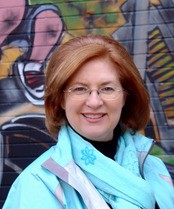
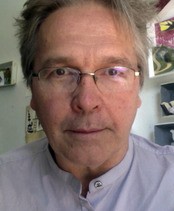
David Elliott
A past chair of the Department of Studio Arts, David Elliott has taught in the Painting and Drawing program at Concordia for over 30 years. Since the mid-1970s, he has exhibited his paintings both nationally and internationally. In 1993, the Museo de Arte Moderno in Mexico City organized David Elliott: Pintura, a major retrospective of his work. More recent overviews include Instant Karma at the Saidye Bronfman Centre for the Arts (2002) and La Chambre enchantée at the Musée Regional de Rimouski (2012). His exuberant, large-scale canvases are included in the collections of the Montreal Museum of Fine Arts, the Musée d'art contemporain de Montréal and the Musée national des beaux-arts du Québec. Elliott's research has been funded by both the Canada Council for the Arts and le Conseil des arts et des lettres du Québec. This support includes senior artist residencies in New York City (2010) and Paris (2013). Elliott also writes about contemporary art, publishing reviews and feature articles in Canadian Art magazine. For a number of years he has been working on a monographic study of American painter and filmmaker Alfred Leslie. The Radical Theatre of Alfred Leslie was published in 2007 by Ameringer/Yohe in New York.
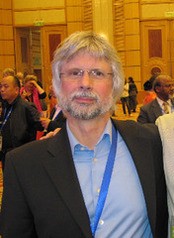
Richard Lachapelle
Before he came to Concordia in 1995, Richard Lachapelle taught studio art, art education and art appreciation at Algonquin College, the Ottawa School of Art, and the University of Ottawa. A former museum educator at the National Gallery of Canada, his research interests have focused on the learning processes involved in the aesthetic understanding of art and, more recently, on strategies for engaging viewers as they encounter works of public art. He is a past-president of SIGEM (Specialized Interest Group on Education and Museums) and is a member of several museum researchers' professional associations. A 1993 Getty Doctoral Dissertation Fellow, Lachapelle has been awarded grants for various individual and team research projects, including an FRDP Research Grant, a SSHRC Team Grant, and an FCAR Soutien aux équipes de recherche. As an artist working in painting, drawing and installation, he has produced seven solo exhibitions and participated in numerous group exhibitions.
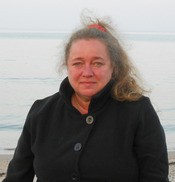
Louise Lamarre
An independent filmmaker, researcher and professor at the Mel Hoppenheim School of Cinema, Louise Lamarre graduated from Laval University (Certificate in Film Studies), Concordia University (BFA in Film Production) and acquired a two-year specialization in in-camera special effects, dramatic writing and directing at the National Film Board of Canada (Dramalab Program). Lamarre has worked as director, scriptwriter and/or producer on more than 40 productions ranging from fiction to documentary, music videos to advertising, corporate films and television credits, including Are You Afraid of the Dark? and Les nouvelles aventures des intrépides. She also wrote several important studies on independent filmmaking for the Government of Quebec, including Le prix de la liberté vol. I and vol. II. Since the beginning of her career, Lamarre has researched special effects. Her FX PROJECT led her to discover a new in-camera special effects technology, which she named Holo Editorial Layering Process (H.E.L.P.). It was awarded a U.S. patent in 2007.
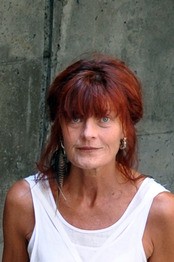
pk langshaw
pk langshaw is known for superior work in research/creation, a deeply collaborative and multi-dimensional practice, a longstanding commitment to issues of social design. As a founding member of Hexagram-Concordia Centre for Research-Creation in Media Arts and Technologies, she has been awarded funding through Hexagram, FQRSC Research-Creation, CASA, McConnell Foundation, CIAM and SSHRC. In 2006 langshaw formed the research lab d_verse, which reflects the poetic nature of and diverse strategies for social commentary and communication. Her hybrid practice is extracted from concrete poetry, and expanded by the quantic relations between memory and presence. Interested in all things verse - diverse, reverse, inversion, transversal, and reversible - the works take the forms of garments, dynamic poems, print, websites, projections, and nomadic performance. langshaw's research includes outreach initiatives in Gulu Uganda and Montreal youth communities. She is an associate member of the Loyola Sustainability Research Centre, a fellow of the Loyola College for Sustainability and Diversity, a board member of the Concordia Volunteers Abroad Program and the undergraduate program director in Design. She also developed a design pedagogy that positions the role of the designer beyond production of singular objects towards a process oriented towards designing for socio-cultural, ecological and economic sustainability.
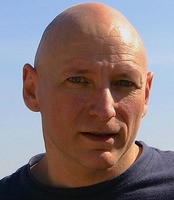
Martin Lefebvre
In addition to teaching courses and supervising many graduate students and postdoctoral fellows in the Film Studies program, Martin Lefebvre serves as the Concordia University Research Chair in Film Studies, director of the Advanced Research Team on the History and Epistemology of Moving Image Studies (ARTHEMIS) and editor of Recherches sémiotiques/Semiotic Inquiry (RS/SI), the Canadian Semiotic Association's journal. Lefebvre has written for film, philosophy and cultural studies journals and anthologies in Canada, Europe, Japan and the United States. His award-winning book Psycho: De la figure au musée imaginaire: Théorie et pratique de l'acte de spectature was published by L'Harmattan in 1997 and he recently published Truffaut et ses doubles (Vrin, 2013). He co-edited Eisenstein: l'Ancien et le nouveau (Publications de la Sorbonne, 2002) and edited the collection Landscape and Film (Routledge, 2006). He's currently editing three other collections and preparing a book on Peirce, pragmatism and images. Before joining in 1998 Concordia's Mel Hoppenheim School of Cinema, where he helped develop the PhD in Film and Moving Image Studies, Lefebvre taught at the University of Alberta and Université Laval. He's also held several international guest professorships. In recent years, Lefebvre has organized major international film studies conferences in Montreal.
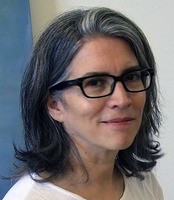
Janet Werner
In early 2012, Montreal's Musée d'art contemporain (MAC) acquired Janet Werner's work Earthling (Red Sweater), 2012, with its chief curator naming Werner amongst the artists "contributing to a revival of painting". Werner, who has just finished serving as chair of the Department of Studio, is a painter whose work currently focuses on the fictional portrait. In her recent portrait series, icons and archetypes of innocence and beauty are divorced from their original contexts and resituated in her paintings so that the "portraits" become vehicles for an exploration of subjectivity, desire and transformation.
Werner has shown widely in Canada at public and private galleries as well as artist-run centres, and internationally at the Prague Bienale, in Germany, South Africa and the U.S. Solo shows include the Saidye Bronfman Centre for the Arts, the Art Gallery of Windsor, the Contemporary Art Gallery in Vancouver, Ottawa Art Gallery, Plug In Institute of Contemporary Art and The Esker Foundation. Amongst her numerous awards have been two Canada Council International Residencies, in New York and Paris. Werner has taught painting and drawing at Concordia since 1999.

